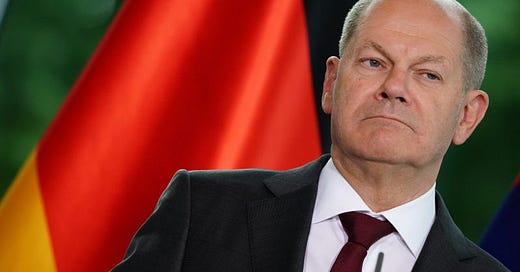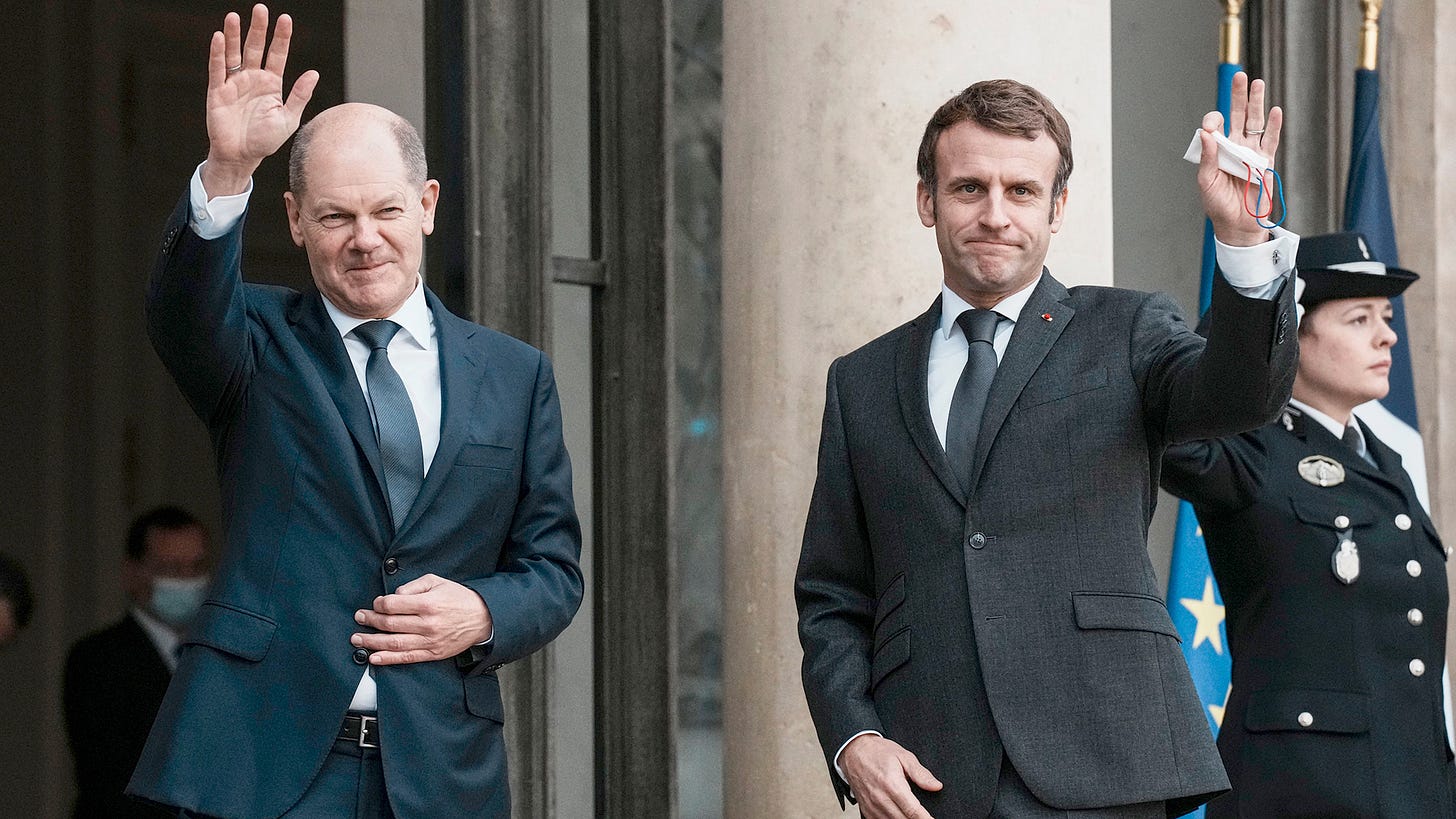Germany, Europe's punching ball
Dependency on both Russia and China, timid collaboration with Ukraine, fossil fuels and investment plans: Germany seems to do everything wrong. But don't hate the player: hate the game.
Since Olaf Scholz took over from Germany, no week can pass by without mentioning how the “traffic light” government did something wrong.
Since 8 December 2021—the date of the election of Olaf Scholz as Chancellor—critics have piled up to uncountable measures. There is the damaged relationship with France, discordance at the Council on which energy measures to adopt, the €200 billion investment plan decided unilaterally, Scholz’s upcoming visit to China…
If that was not enough, Poland decided to push forward a claim for war reparations… more than seven decades after the end of World War II.
Among this steam of unpopular news, only the Zeitenwende speech on 27 February shines positive feedback. Even the 30 August declarations in Prague, which should have been the German equivalent of France’s Emmanuel Macron’s Sorbonne speech were deemed not enough by some critics. You’ll find below the piece written for the occasion by Philipp Saueracker, for The Beubble.
It's easy to blame everything on Germany
These days, Germany has become Europe’s bad guy. Not only did it finance Putin’s war machine with its reliance on imported gas, but it also does not seem to be doing enough when it comes to helping Ukraine. Kyiv repeatedly denounced Germany for not fulfilling its promises on weapons delivery.
In the energy world, commentators criticise Berlin for its reliance on fossil fuel, motivated by the emotionally-motivated choice to close nuclear plants following the Fukushima incident. The first promise of the current government was to encourage the use of natural gas to encourage a gradual phase-out of coal. So much for greening one’s economy.
From one reliance to another. After Germany showed the world its dependence on Russian gas, it now realises the extent of China’s reach on its trade balance and economy. And Scholz’s upcoming trip to China does nothing to reassure critics that claim that the communist state is playing European against one another.
Don’t hate the player, hate the game
I would argue that Germany’s position is understandable in a Germany-centered context. And the decision by Olaf Scholz to “play solo” is motivated by the difficulty of governing a wide coalition. He recently used his constitutional powers to order the continuation of nuclear reactors, against the advice of his coalition’s partners.
The current German coalition goes to the liberal of the FDP, committed to fiscal responsibility and pro-business policies, while the Greens are built on an anti-nuclear platform, with a commitment to social policies that clash with those of the former party. In the middle, SPD’s Scholz tries to find an uneasy balance to satisfy national interests, to the detriment of Europe.
And who can blame him? European citizens did not elect him Chancellor: Dem Deutschen Volk1 did.
If Europe wants more solidarity from Germany, it should not vainly hope for it, but take the necessary steps to claim it. Once again, the answer is “more Europe.” The Union should, as it has already done in past crises, encourage collaboration. Not just hope and call for it, but draft real legislation that forbids selfish measures.
Why not use the recent call from the European Parliament for the drafting of new European treaties? Europeans are ready for more solidarity between nations, and if states do not want to offer it, they should legally be forced to do so, on behalf of the European greater good.
In conclusion, don’t hate Germany for doing German politics. Don’t hope France will always cover the European interest. Don’t regret Mario Draghi’s europhile administration. Instead, change the rules. Force European solidarity, from all, for all times.
Don’t hate the player, hate the game. And change its rules.
The German people, from the scripture at the top of the German parliament building.







